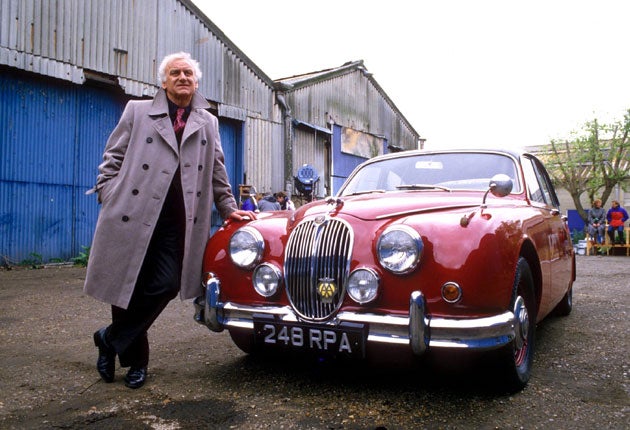Why no one wants to be Morse any more
There was a time when every police officer wanted to ditch the uniform and become a detective. Not these days

Ever since Jack Regan nicked his first "slag", greeting him with the memorable address "We're The Sweeney, son. And we haven't had any dinner", the place of the hard-bitten detective has been secured in British hearts as the pinnacle of policing.
The sleuthing exploits of Jim Taggart, Gene Hunt and the rather more cultured Endeavour Morse have all added to the kudos and reputation of detectives as a role to which thousands of recruits aspired; the branch of policing which would allow them to hunt murderers, rapists and some of Britain's most dangerous criminals.
But senior officers say that the lure of becoming a detective no longer holds the same appeal. They say that younger officers are now more content to stay in uniformed positions which afford them the same wages as their plain-clothes counterparts but more stable working hours.
The creation of the Serious Organised Crime Agency (Soca), which deals with international gangs who look to bring their criminality to Britain, has apparently added to the problem because it now deals with villains that would previously have been pursued by detectives in regional police forces.
The situation is so bad that Detective Inspector Brian Stockham, the chair of the Police Federation's detective forum, estimates there are about 5,000 detective vacancies in Criminal Investigation Departments (CID) across Britain's 43 police forces. The Federation attempted to highlight the problem at their conference in Bournemouth this year, holding a session titled "Criminal Investigation Department or Crisis in Detecting?".
DI Stockham said: "Some forces are having to pay retired detectives to come back and carry on working investigations. There are also some forces hiring civilian investigators which means that some crimes are not even being investigated by police officers. Not only does that highlight the problem, it frustrates other guys in CID who are saying to themselves 'this job is being ruined'. If things carry on like this we will have no detectives left in the country in 10 years."
Anecdotal reasons for the lack of interest among uniformed officers in CID include that uniformed officers and detectives are paid the same wage but most forces operate a rota system whereby uniformed officers work fours days on, then have four days off. The potential to earn overtime in those four days is large.
Detectives work more varied hours and, should their shift end during an ongoing incident, they are expected to carry on working while their uniformed colleagues simply "hand over" to the next shift. Detectives are entitled to overtime but are encouraged to accept compensation for their overtime hours by way of days in lieu as opposed to money.
Previously, detectives were afforded allowances, such as for plain clothes, but now they have to buy the clothes they wear on duty, while their colleagues are issued with a uniform.
Then there is the operational aspect. DI Stockham said: "When I joined the force 25 years ago, regional crime squads were investigating serious national and international crime but detectives in police forces cannot do that anymore. Soca want to take out the big guys and CID detectives are limited in what they can explore."
To stem the shortage of investigators, the exam pass mark for those wishing to get on to the National Detective Training Programme has been lowered from 80 per cent in the 1980s to 48.6 per cent this year.
"Without wishing to demean young detectives that are coming through nowadays, they are obviously not going to be as good with the standards so low," DI Stockham said. "They don't even need to be half right to get on the scheme."
Northumbria, Avon and Somerset, Greater Manchester and Surrey are among the forces most troubled by the lack of new detectives. Detective Constable Aiden Keilty, from Greater Manchester Police said: "We want experienced guys but none of them will apply to become a detective because, for some reason, trainee detectives don't get the [special priority payment] allowance [that uniformed officers get after two years]."
The Metropolitan Police is not said to be suffering as badly, partly because it has traditionally been an attractive option for detectives from other south-east forces.
"Effectively you are asking guys to make themselves poorer to become a detective. People aren't willing to take a pay cut to do a job which is already seen as unattractive because of the long hours," said DI Stockham.
"By staying in uniform they will never get to deal with armed robbers, rapists, murderers, drug dealers or organised criminals – the top end of crime. Any serious crime they come across will be taken from them and given to detectives. They will never have the satisfaction of compiling a case file, getting it through the CPS, then going to court and sending a bad guy down for a long time. For most detectives that is the kind of satisfaction that is akin only to an orgasm."
